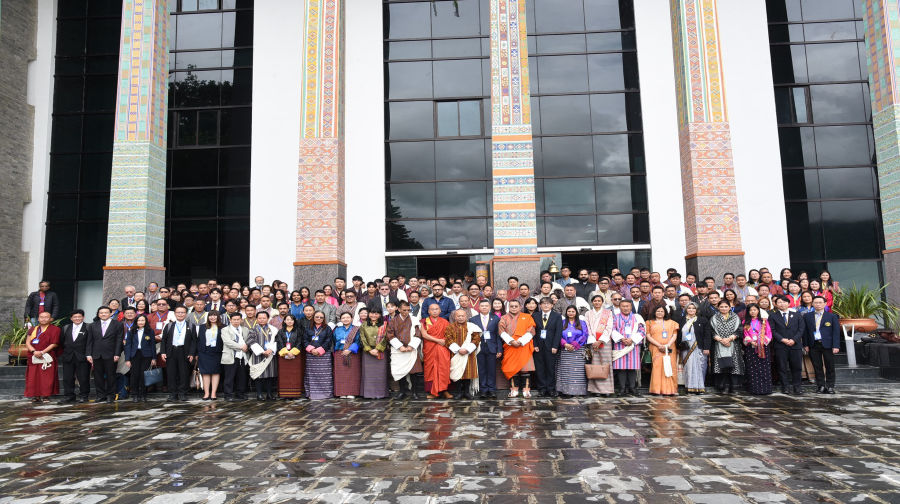 Bhutan and the Japan International Cooperation Agency (JICA) are building and improving health-related data banks to digitalise Bhutan’s health system. The banks will contain information about individuals related to health, medical, genetic and household information. This is to strengthen the health information system and improve universal health coverage.
Bhutan and the Japan International Cooperation Agency (JICA) are building and improving health-related data banks to digitalise Bhutan’s health system. The banks will contain information about individuals related to health, medical, genetic and household information. This is to strengthen the health information system and improve universal health coverage.
The whole of digital health in Bhutan was discussed at the ongoing three-day International Conference on Medical and Health Sciences, which began today.
As a part of the conference, a session was focused on digital health, such as the benefits of data banks. One of the data banks in Bhutan is the Electronic Patient Information System, ePIS, which is already in use and contains the clinical and medical records of individuals.
As part of a collaboration between Bhutan and JICA, a health data bank will also be developed, which will contain the behavioural information collected from wearable devices such as smart watches. Next is a biobank, which will contain genetic information collected from biological samples such as blood from individuals to help diagnose diseases.
Meanwhile, a household data bank called the Annual Household Health Surveillance System has already been developed, which will soon be made available to the public.
“When you triangulate all these four data banks, researchers can come and analyse and come up with a very good policy recommendation for the entire country. And it also has huge potential. Researchers worldwide will be looking for such a data bank. So, we are gearing up as a pilot phase through the JICA, for this four data bank project,” said Mongal Singh Gurung, Medical Statistician, MoH.
“It will greatly help the diagnosis by the doctors, and this can be utilised especially in remote areas where the doctors and health professionals are scarce, so that AI can assist the diagnosis of the patients. Further, this can be utilised even for industrial developments. This data can be utilised for pharmaceutical companies and research centres to develop medicines and vaccines,” said Togawa Shotaro, Deputy Director, Human Development Department, JICA.
According to JICA, this is not only about health but also about the industrial development of a nation.
Amid such initiatives, the health ministry is reviewing the National Digital Health Strategy and Action Plan of 2018. The finalised draft is waiting to be approved by the high-level committee of the health ministry.
“We expect that we will have a strategic way of moving, harnessing, or leveraging digital technologies. So, we have tried to assess what will work for the country, what will not work for the country. And we have come up with a cost-of-action plan with certain visions and outputs in mind,” said Mongal Singh Gurung, Medical Statistician, MoH.
The strategy and action plan are drafted in partnership with the GovTech Agency and are reviewed and validated by WHO and JICA experts.
Singye Dema
Edited by Kipchu








